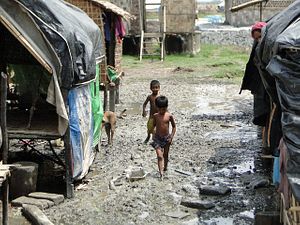Prior to U.S. President Barack Obama’s second visit to Myanmar for the East Asia Summit and ASEAN Summit held from November 12-14 in Nay Pyi Taw, Myanmar President Thein Sein held the country’s biggest political event, a heavyweights’ political dialogue that featured NLD chair Aung San Suu Kyi, President Thein Sein, the speakers from both the lower and upper house, the commander-in-chief, and nine other key political stakeholders. Each person had only 10 minutes to speak. Some lauded the meeting as very positive for the political transition, while many claimed that it was just a “showcase” to convince the world that Myanmar’s reform had not stalled, just before the important summits began. With the successful completion of these summits, now is the time to determine whether this crucial political dialogue really is meaningful. If Thein Sein and his allies in the military are seriously committed to a genuine transition, a series of similar political talks will be pursued soon, especially at this stage of a delicate transition. A failure to hold similar talks on a regular basis will show that this event was merely a façade, and should prompt Myanmar opposition groups to come up with tactics to make sure that Myanmar moves forward.
While American’s “dual track” or “principled engagement”” foreign policy has been a relative success so far, it has several weaknesses when it comes to encouraging a genuine democratic transition in Myanmar. First of all, during several conversations with world leaders, including Obama in Nay Pyi Taw, Thein Sein made no guarantee that he would call for such an important meeting again. This could be a blow for Obama, who will be keen to show an American foreign policy success in Asia, especially in Myanmar’s democratization. The U.S. president needs to make sure these meetings continue. What Obama did this year was to reiterate American support for the democratic transition in a broad sense – a repeat of his last visit in 2012. Myanmar needs a different strategy.
Second, Obama should have offered tangible support during his visit, as China did. During the summits, China reached deals with the Myanmar government to provide nearly $8 billion in support, including loan programs to poor farmers and investments in the energy sector, telecommunication, and infrastructure. This amount is quite substantial for a small economy like Myanmar: almost 12 percent of GDP. It is not surprising that China is attempting to preserve its once significant influence in Myanmar, while at the same time counterbalance potential American influence. What is surprising is that Suu Kyi was reportedly welcomed to visit China next month.
Likewise, Japan has played a more tangible role in Myanmar affairs compared to the U.S. For instance, in a major ceremony, Japan provided three large ferries worth $4 million each for Yangon-Dala River crossings, a contribution that will tend to benefit ordinary people and not just the elites. Japan has long assisted Myanmar, and is perhaps the most generous donor to date – helping to write-off $6 billion in debt from international financial institutions such as the World Bank and the ADB.
For its part, the U.S. has many areas where it could provide Myanmar with effective assistance, such as economic reform — through aid or foreign investment — to improve the lives of ordinary people during the democratic transition.
Third, Obama should not underestimate Myanmar’s ruling politicians. Even during his visit, parliament discussed much sought-after constitutional changes. Army representatives appointed directly by the commander-in-chef that constitutionally control 25 percent of parliamentary seats reportedly rejected the changes. Instead, they demanded greater authority for the National Defense and Security Council, which is occupied by powerful military officers. There is an important question here of civilian oversight of the military. A genuine democratic transition requires reform of the military. That in turn requires the support of a superpower like the U.S. Obama will need to deal with this issue effectively if he really wants to show Myanmar as one of his foreign policy success stories.
Finally, some of Myanmar’s reform programs need time, as minister to the president Soe Thane wrote in the New York Times. However, in some parts of the country many poor people can no longer afford to wait. Since Thein Sein took power, for instance, there has been an urgent need to pursue land reform to achieve poverty reduction. Although Thein Sein announced that poverty reduction was a top priority, effective land reform, critical to the poverty issue, has been largely untouched. In addition, the government’s land policy remains vague. That leaves poor farmers at the mercy of land seizures by military and business elites.
Of these important areas where the U.S. can nudge Myanmar’s democratic transition forward, Obama should not have missed the opportunity to secure a guarantee from the government to keep the political dialogue going, at least until tangible results are achieved. Whether it keeps going, and how effective the outcome is, will be critical determinants of the success of Myanmar’s democratic transition.
Aung Tun is an independent consultant for several development organizations in Myanmar, and has worked as a journalist for several years. He is involved in the electoral process as an election monitor and political researcher.

































